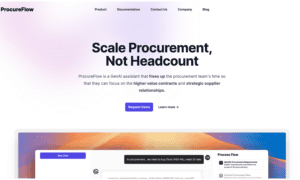In today’s interconnected world, the surge of big data has become both a promise and a peril for industries across the globe. While organizations collect unprecedented volumes of data, the challenge lies in transforming these vast troves of information into actionable insights. When data remains unprocessed or improperly analyzed, it can lead to significant inefficiencies, increased costs, and even critical errors. In healthcare, for example, unstructured data can delay patient diagnoses or lead to redundant testing. In the financial sector, improper data management can result in missed opportunities for fraud detection, costing millions. A study by IBM suggests that the cost of poor data quality can reach up to $3.1 trillion annually in the United States alone, affecting everything from operational efficiency to customer satisfaction.
Faced with these pressing issues, researchers from leading academic institutions, Mesbaul Haque Sazu and Sakila Akter Jahan , are paving the way for a new era in data analytics and making real-world applications in various industries such as finance, health care, manufacturing & construction etc. Their work focuses on creating frameworks that convert overwhelming data into actionable, strategic insights, driving efficiency and innovation across multiple sectors, from healthcare to manufacturing.
Tackling an Overload of Data
The influx of data can overwhelm even the most sophisticated systems. According to IDC, by 2025, the global data sphere is expected to reach 175 zettabytes, a staggering figure that underscores the challenge industries face in managing information. Data overload often leads to decision paralysis, inefficiencies, and reduced productivity. As Mesbaul explained, “The real question isn’t how much data we can gather but how effectively we can use it to make meaningful, timely decisions.” To address this challenge, Mesbaul and Sakila developed advanced data frameworks that prioritize data relevance, streamline processing, and deliver actionable insights with precision.
Transforming Healthcare Operations
The impact of big data is perhaps most evident in healthcare, where timely and accurate information can mean the difference between life and death. The researchers’ analytics framework was adopted by a leading U.S. healthcare provider to transform patient care. Before implementation, patient data analysis often took several days, delaying critical care decisions. With the new framework, this process has been reduced to mere minutes. This shift has improved patient outcomes and reduced operational costs by an estimated 30%.
For organizations like CVS, Cigna, and DaVita, such frameworks can prove invaluable. By analyzing patterns in patient behavior and disease progression, healthcare professionals can now make more informed decisions. “What was once a time-consuming process that took days can now be accomplished in minutes,” said Sakila. For instance, predictive analytics enabled by the framework could help reduce hospital readmission rates by up to 15%, significantly improving patient care efficiency and saving millions in associated costs. Mesbaul added, “When data becomes a tool rather than a barrier, that’s when true transformation happens.”
The framework can also optimize resource allocation, allowing hospitals to better manage staff, equipment, and patient care. The American Hospital Association reported that healthcare systems leveraging advanced analytics have seen operational cost reductions of up to $21 billion annually through better resource management and patient care coordination.
Driving Innovation in Manufacturing
The researchers’ innovations extend beyond healthcare. A prominent U.S.-based manufacturing giant implemented their analytics framework to gain deeper insights into consumer behavior and streamline operations. “Manufacturing is about precision,” said Mesbaul. “By analyzing patterns in consumer data, we were able to help companies make more informed decisions, saving millions of dollars in ad spend and operational inefficiencies.”
Take the example of a major global manufacturer, which reported a 20% reduction in production waste after integrating the analytics framework. This improvement translated to millions of dollars in annual savings. By accurately predicting consumer demand and optimizing inventory levels, the company avoided overproduction and reduced storage costs. HP, Tyson Foods, and Sherwin-Williams are among companies that can benefit from the framework’s capabilities. By offering real-time insights, the system can enable these companies to better understand consumer preferences, tailor product offerings, and optimize production processes.
Sakila highlighted another key benefit: “Understanding consumer behavior at a granular level empowers companies to create better products, tailor experiences, and ultimately deliver more value.” This not only improves profitability but also solidifies their market position.
From Research to Real-World Impact
The researchers’ journey from academic inquiry to practical application showcases the power of collaborative innovation. “Our goal has always been to bridge the gap between theoretical frameworks and real-world application,” said Mesbaul. This approach has not only benefited individual companies but has also set a precedent for how data can be harnessed across multiple industries.
A Glimpse into the Future
Looking ahead, the researchers are optimistic about the potential of data-driven solutions to reshape other sectors, such as logistics and energy. “Data is the common thread that ties all industries together,” noted Sakila. “The challenge is to continue evolving our methodologies to address new problems as they arise.”
Their work exemplifies the transformative potential of data analytics, providing a roadmap for industries seeking to leverage data more effectively. By focusing on relevance, scalability, and impact, they have demonstrated that big data can be a force for positive change—if harnessed wisely.



































